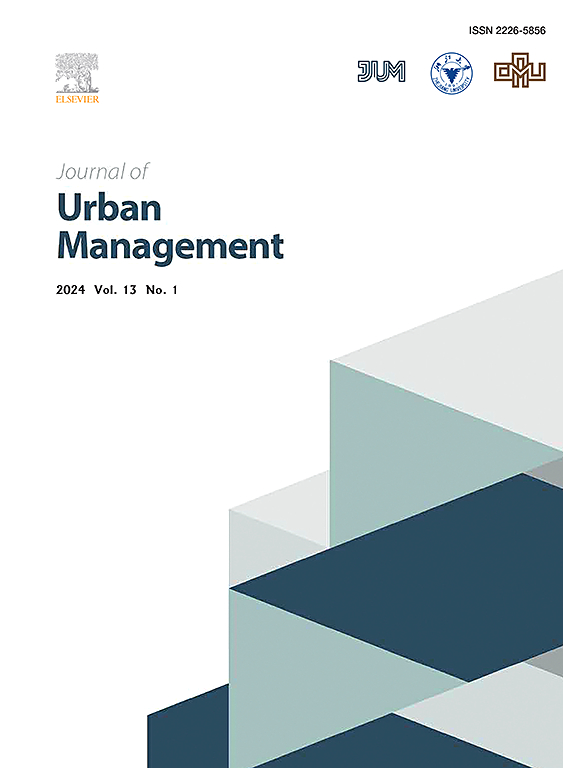新冠肺炎疫情对印尼万隆Airbnb入住率的影响
IF 5
2区 社会学
Q1 URBAN STUDIES
引用次数: 0
摘要
共享经济的出现,特别是住宿平台的出现,使得人们可以将自己的私有财产出租给他人,并将其资本化。然而,随着covid-19大流行和一线城市的临近,研究这些共享住宿物业如何生存至关重要。本文调查了2019冠状病毒病大流行期间,城市社区、Airbnb特征和城市流动性限制如何决定万隆这个二线城市的租赁入住率。本文考察;(一)疫情前后入住率决定因素的动态变化;(二)流动性和与一线城市的空间邻近性对共享住宿入住率的影响。本研究对2016年至2020年在万隆市注册的2200多个Airbnb房源进行了计量经济学和空间分析。我们的研究发现,随着疫情的轻微下降,人们的偏好向更偏向城市的方向转变,电子口碑(eom)变量也在继续。大流行之前和期间的比较表明,持续的高入住率集中在私人房源中,并且位于旅游景点和各种便利设施附近。我们的研究结果呼吁城市政策限制短期租赁(STR)物业的地理分布,以避免更广泛的高档化、安全风险和对当地住房供应的压力。本文章由计算机程序翻译,如有差异,请以英文原文为准。
Impact of COVID-19 on Airbnb occupancy rate in Bandung, Indonesia
The emergence of sharing economy, especially accommodation platform has enable people to rent and capitalize on their private properties by renting to others. However, with the covid-19 pandemic and proximity to first-tier city it is crucial to examine how these sharing accommodation properties survives.
The paper investigates how urban neighbourhoods, Airbnb characteristics and urban mobility restrictions determine rental occupancy rates in Bandung, a second-tier city, during the COVID-19 pandemic. This paper examines; (i) the dynamics of determinant factors of occupancy rates before and after the pandemic and (ii) the impact of mobility and spatial proximity to first-tier city on sharing accommodations’ occupancy rates. This study uses econometric and spatial analysis with more than 2200 Airbnb property listings registered between 2016 and 2020 in Bandung city.
Our study found a shift of preferences in a more urban direction and electronic word-of-mouth (eWOM) variables continuing with a slight decline in the pandemic. Comparison between before and during the pandemic suggests the persistent of high occupancy rate concentration only in in private listings, and located near to tourist attractions and a variety of amenities. Our finding calls for urban policies that limits the geographical distribution of short-term rental (STR) properties to avoid wider gentrification, safety risks, and pressure to the local housing supply.
求助全文
通过发布文献求助,成功后即可免费获取论文全文。
去求助
来源期刊

Journal of Urban Management
URBAN STUDIES-
CiteScore
9.50
自引率
4.90%
发文量
45
审稿时长
65 days
期刊介绍:
Journal of Urban Management (JUM) is the Official Journal of Zhejiang University and the Chinese Association of Urban Management, an international, peer-reviewed open access journal covering planning, administering, regulating, and governing urban complexity.
JUM has its two-fold aims set to integrate the studies across fields in urban planning and management, as well as to provide a more holistic perspective on problem solving.
1) Explore innovative management skills for taming thorny problems that arise with global urbanization
2) Provide a platform to deal with urban affairs whose solutions must be looked at from an interdisciplinary perspective.
 求助内容:
求助内容: 应助结果提醒方式:
应助结果提醒方式:


